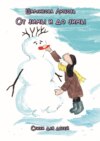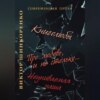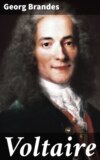Loe raamatut: «Main Currents in Nineteenth Century Literature – 3. The Reaction in France»
"Allen Gewalten
Zum Trutz sich erhalten,
Nimmer sich beugen …"
– GOETHE.
"Philosophiren ist dephlegmatisiren, ist vivissciren."
– NOVALIS.
INTRODUCTION
The task of giving a connected account of the German Romantic School is, for a Dane, an arduous and disheartening one. In the first place, the subject is overwhelmingly vast; in the second, it has been treated again and again by German writers; and, lastly, these writers, in their division of labour, have entered so learnedly into every detail, that it is impossible for a foreigner, one, moreover, to whom the sources are not always accessible, to compete with them in exhaustive knowledge. From their childhood they have been familiar with a literature with which he first makes acquaintance at an age when assimilation, in any quantity, has become a much more difficult process. What the foreigner must rely on is, partly the decision with which he takes up and maintains his personal standpoint, partly the possibility that he may display qualities which are not characteristic of the native author. Such a quality in the case in point is the artistic faculty, the faculty, I mean, of representation, of externalisation. The German nature is so intense and profound that this faculty is comparatively rare. The foreigner has, moreover, this advantage over the native, that it is easier for him to detect the mark of race – that in the German author which stamps him as a German. The German critic is too apt to consider "German" synonymous with "human being," for the reason that the human beings he deals with are almost always Germans. The foreigner is struck by characteristics which are overlooked by the native, sometimes because he is so accustomed to them, more frequently because he himself possesses them.
There are many works to be criticised and classified, many personalities to describe. My aim will be to present these personalities and works in as firm and sharp outline as possible, and, without giving undue attention to detail, to throw light upon the whole in such a manner that its principal features will stand out and arrest the eye. I shall endeavour, on the one hand, to treat the history of literature as humanly as possible, to go as deep down as I can, to seize upon the remotest, innermost psychological movements which prepared for and produced the various literary phenomena; and on the other hand, I shall try to present the result in as plastic and tangible a form as possible. If I can succeed in giving shape, clear and accurate, to the hidden feeling, the idea, which everywhere underlies the literary phenomenon, my task will be accomplished. By preference, I shall always, when possible, embody the abstract in the personal.
First and foremost, therefore, I everywhere trace the connection between literature and life. This is at once proved by the fact that, whereas earlier Danish literary controversies (that between Heiberg and Hauch, for example, or even the famous one between Baggesen and Oehlenschläger) were kept entirely within the domain of literature and dealt exclusively with literary principles, the controversy aroused by the first volume of this work has entailed, quite as much from the nature of the work as from the irrationality of its opponents, the discussion of a multitude of moral, social, and religious questions. The Danish reaction, feeling itself to be akin to the one I am about to depict and unmask, has attempted to suppress the movement which it recognised to be antagonistic to itself – but so far with little prospect of success. A French proverb says: Nul prince n'a tué son successeur.
When, however, the connection between literature and life is thus emphasised, the delineations and interpretations of men and their books by no means produce what we may call drawing-room history of literature. I go down to the foundations of real life, and show how the emotions which find their expression in literature arise in the human heart. And this same human heart is no still pool, no idyllic mountain lake. It is an ocean, with submarine vegetation and terrible inhabitants. Drawing-room history of literature, like drawing-room poetry, sees in human life a drawing-room, a decorated ball-room – the furniture and the people alike polished, the brilliant illumination excluding all possibility of dark corners. Let those who choose to do so look at things thus; it is not my point of view. Just as the botanist must handle nettles as well as roses, so the student of literature must accustom himself to look, with the unflinching gaze of the naturalist or the physician, upon all the forms taken by human nature, in their diversity and their inward affinity. It makes the plant neither more nor less interesting that it smells sweet or stings; but the dispassionate interest of the botanist is often accompanied by the purely human pleasure in the beauty of the flower.
As I follow the more important literary movements from country to country, studying their psychology, I attempt to condense the fluid material by showing how, from time to time, it crystallises into one or other definite and intelligible type. The attempt is attended with extraordinary difficulty in this particular period of German literature, from the fact that the chief characteristic of the period is an absence of distinctly typical forms. This literature is not plastic; it is musical. French Romanticism produces clearly defined figures; the ideal of German Romanticism is not a figure, but a melody, not definite form, but infinite aspiration. Is it obliged to name the object of its longing? It designates it by such terms as "ein geheimes Wort," "eine blaue Blume," "der Zauber der Waldeinsamkeit" (a mystic word – a blue flower – the magic of the lonely woods). These expressions are, however, definitions of moods, and each mood has a corresponding psychological condition, my task is to trace back each mood, emotion, or longing to the group of psychological conditions to which it belongs. This group in combination constitutes a soul; and such a soul, with strongly marked individuality, represents in literature the many who were unable to depict their own character, but who recognised it when thus placed before them. I may possibly succeed in proving that the type does not escape us because the author may have chosen to paint landscape after landscape in place of delineating characteristic personalities, or because he confounds literature with music to the extent of at last entitling his poems simply Allegro or Rondo; but that, on the contrary, the distinctly peculiar qualities of these landscapes and the character of this word-music are symptomatic of a psychological condition which may be determined with considerable accuracy.
In the general introduction to this work I have sketched the plan which I have proposed to myself. It is my intention to describe the first great literary movement of the century, the germinating and growing reaction, first elucidating its nature, then following it to its climax. Afterwards I shall show how this reaction was met by a breeze of liberalism blowing from the eighteenth century, which swells into a gale and sweeps away all opposition. Not that the liberal views of the nineteenth century are ever identical with those of the eighteenth, or that its literary forms or scientific ideas ever bear the eighteenth century stamp. Neither Voltaire, nor Rousseau, nor Diderot, neither Lessing nor Schiller, neither Hume nor Godwin, rise from the dead; but they are one and all avenged upon their enemies.
Regarded as a whole, German Romanticism is reaction. Nevertheless, as an intellectual, poetico-philosophical reaction, it contains many germs of new development, unmistakable productions of that spirit of progress which, by remoulding the old, creates the new, and by altering boundaries gains territory.
The older Romanticists begin, without exception, as the apostles of "enlightenment." They introduce a new tone into German poetry, give their works a new colour, and, in addition to this, revive both the spirit and the substance of the old fairy-tale, Volkslied, and legend. They exercise at first a fertilising influence upon German science; research in the domains of history, ethnography, and jurisprudence, the study of German antiquity, Indian and Greek-Latin philology, and the systems and dreams of the Naturphilosophie all receive their first impulse from Romanticism. They widened the emotional range of German poetry, though the emotions to which they gave expression were more frequently morbid than healthy. As critics, they originally, and with success, aimed at enlarging the spiritual horizon. In their social capacity they vowed undying hatred to all dead conventionality in the relations between the sexes. The best among them in their youth laboured ardently for the intensification of that spiritual life which is based upon a belief in the supernatural. In politics, when not indifferent, they generally began as very theoretical republicans; who, however, in spite of their cosmopolitanism, strove to elevate and strengthen German patriotism.
Unfortunately, their pursuit of all these worthy aims ended in comparative failure. Of all that the German Romanticists produced, little will endure – some masterly translations by A. W. Schlegel, a few of Tieck's productions, a handful of Hardenberg's and another of Eichendorff's lyrics, some of Friedrich Schlegel's essays, a few of Arnim's and Brentano's smaller works, a select number of Hoffmann's tales, and some very remarkable dramas and tales from the pen of that eccentric but real genius, Heinrich von Kleist. The rest of the life-work of the Romanticists has disappeared from the memory of the present generation. Looking back on it from this distance, most of their endeavour seems to have ended in smoke. In the matter of language, with their intangible imagery, their misuse of words in expressing the strange, weird, and mysterious, their archaisms, and their determination to be unintelligible to the ordinary reader, they rather diminished than enriched the poetic vocabulary, rather corrupted than improved literary style. In the domain of poetry, Romanticism ended in hysterical piety and vapouring. In the social domain it occupied itself with only one question, that of the relations between the sexes; and its ideas on this subject were, for the most part, so abnormal and morbidly unhealthy, that most of its passionate blows were dealt in the air. In dealing them, it was not humanity at large that the Romanticists had in view, but a few favoured, aristocratic, artistic natures. In religious matters, these men, whose moral and poetical theories were at first so revolutionary, bowed their necks to the yoke the moment they saw it. And in politics it was they who directed the proceedings of the Congress of Vienna and prepared its manifestoes, abolishing liberty of thought in the interval between a religious festival in St. Stephen's and an oyster supper with Fanny Elsler.
I shall touch but seldom and briefly upon Danish literature, only now and again piercing in the canvas of the panorama I am unrolling a hole through which the situation in Denmark may be seen. Not that I forget or lose sight of Danish literature. On the contrary, it is ever present with me. Whilst trying to present to my readers the inner history of a foreign literature, I am all the time making indirect contributions to the history of our own. I am painting the background which is required to throw its characteristics into relief. I am working at the foundation upon which, according to my conviction, the history of modern Danish literature rests. My method may be indirect, but it is the more thorough for that. I should like, however, in a few words, to indicate the general conclusion to which a comparison between Danish and foreign literature at this period has led me.
The relative positions of Germany and Denmark may be defined as follows: German literature is at this period comparatively original in its aims and its productions; Danish literature either continues the working out of a peculiarly Scandinavian vein, or builds upon German foundations. The Danish authors have, as a rule, read and assimilated the German; the German authors have neither read nor been in any way influenced by the Danes. Steffens, through whom we receive the impetus from Germany, is the devoted disciple of Schelling. Witness the following passage from one of his letters to that philosopher: "I am your pupil, absolutely and entirely your pupil. All that I produce was originally yours. This is no passing feeling; it is my firm conviction that such is the case, and I do not think the less of myself for it. Therefore, when once I have produced a really great work which I should gladly call mine, I shall, as soon as it has been recognised, publicly, enthusiastically, proclaim you to be my teacher, and hand over to you my laurel wreath."1
In German literature there is more life, in the corresponding Danish literature more art. It is Germany which produces, which unearths, the material. That literature of which Romanticism is the first development, lives and moves and revels in intense emotions, struggles with problems, creates forms which it dashes to pieces again. Danish literature takes German material and ideas, instinct with life, and often succeeds in moulding them more artistically, giving them clearer expression than their German producers do. (Note, for example, the case of Tieck and Heiberg.) The Danes apply and remodel, or they embody kindred ideas in more favourable and more plastic material, such, or instance, as that provided by the Scandinavian mythology and legends.
The result, as I have elsewhere shown, is that Romanticism acquired more lucidity and clearer contours on Danish soil. It became less a thing of the night; it ventured, veiled, into the light of the sun. It felt that it had come to a sedate, sober-minded people, a people who were not yet quite sure that moonlight was not unnatural and sentimental. It came up from the deep mine shafts from which Novalis had been the first to conjure it, and, with Oehlenschläger's Vaulundur, hammered on the mountain-side till the mountain burst open and laid all its treasures bare to the light of day. It felt that it had come to another, a more serene and idyllic clime; it shook off all its weirdness; its thick, shapeless mists condensed into slender river nymphs; it forgot the Harz and the Blocksberg, and took up its abode one beautiful Midsummer Eve in the Deer Park near Copenhagen.2
Aladdin is a finer and more intelligible literary work than Tieck's Kaiser Oktavianus, but Oehlenschläger could not deny that Aladdin would never have been written if Oktavianus had not been in existence. Heiberg's Julespög og Nytaarslöjer is to the full as witty as Tieck's Aristophanic satires, but the whole idea – the play within the play, the literary satire, and the blending of the sentimental with the ironical – is borrowed from Tieck, and, what is worse, is only comprehensible from Tieck's standpoint. In short, there is in Oehlenschläger, Hauch, and Heiberg more form than in Novalis, Tieck, and Fr. Schlegel, but less substance – that is to say, less direct connection with real life. German literature has too often formed the connecting link. We Danes have too often refused to occupy ourselves, in literature, with the great problems of life, have simply dismissed them when we could not succeed in giving them correct literary form.
Looked at from the psychological point of view, the position may be described as follows. The Danish Romantic authors have, generally speaking, been the superiors of the Germans as regards art, their inferiors as regards intellect. As a rule, every production of the German author, however small, though it be formless, weak, nay, actually a failure, yet expresses a whole philosophy of life, and that no fanciful philosophy, but one evolved and matured by personal experience, and stamped with the whole astonishingly many-sided culture which distinguishes the educated German. A poem by Novalis, a tale by Tieck or Hoffmann, or a play by Kleist, contains a poetico-philosophical theory of life; and it is the theory not only of a poet, but of a man. A tragedy by Oehlenschläger again, or a fairy tale by Andersen, or a vaudeville by Hostrup, will almost invariably be distinguished by such distinctly poetical qualities as fancy, feeling, whimsicality, gaiety, youthful freshness and aplomb, but the philosophy is too often as primitive as a child's. Heiberg is almost the only writer in whose works there is any sign of a philosophy based upon science, and acquiring ever more profundity from the experiences of life. Of real development there are often only faint traces. The youthful works of such authors as Oehlenschläger, Winther, and Andersen are as perfect as those of their maturity. Sometimes, as in the case of Oehlenschläger, advancing years produce in the talent a suspicion of corpulence, of unctuousness. Sometimes, as in the case of Paludan-Müller, the ideal grows more and more attenuated. When a change does take place, it rarely signifies that the author has gradually evolved for himself a new philosophy of life; no – after treading the narrow path of poetry for a time, he strikes into one of the two great highroads, either the road of middle-class respectability or the road of orthodox piety. The dressing-gown or the cassock – one or other of these garments almost inevitably supersedes the Spanish cloak of poetic youth.
It may, then, generally speaking, be asserted that, in those cases where it is possible to compare the German Romanticists with the Danish, the former have the more original philosophy of life, and are greater as personalities, whatever they may be as poets.
Let us look at the subject from a third point of view. To the Danish authors, as a body, may be attributed the merit of avoiding the fantastic, tasteless extravagances of which the Germans are frequently guilty. The Danes stop in time; they avoid paradox or do not carry it to its logical conclusion; they have the steadiness due to naturally well-balanced minds and naturally phlegmatic dispositions; they are hardly ever indecent, audacious, blasphemous, revolutionary, wildly fantastic, utterly sentimental, utterly unreal, or utterly sensual; they seldom run amuck, they never tilt at the clouds, and they never fall into a well. This is what makes them so popular with their own countrymen. Unerring taste and elegance, such as distinguish Heiberg's poetry and Gade's music, vigorous, healthy originality, such as characterises Oehlenschläger's and Hartmann's best works, will always be prized by Danes as the expression of noble and self-controlled art. What a contrast is presented by the overstrained, extravagant personalities peopling the Romantic hospital of Germany! A phthisical Moravian Brother with the consumptive's sensuality and the consumptive's mystic yearnings – Novalis. A satirical hypochondriac, subject to hallucinations and with morbid leanings to Catholicism – Tieck. A genius, impotent to produce, but with the propensity of genius to revolt and the imperative craving of impotence to subject itself to outward authority – Friedrich Schlegel. A dissipated fantast with the half-insane imagination of the drunkard – Hoffmann. A foolish mystic like Werner, and a genius like the suicide Kleist. Think of Hoffmann, and his pupil, Hans Andersen, and observe how sane, but also how sober and subdued, Andersen appears compared with his first master.
It is, then, certain that there is more of the quality of harmony among the Danes. And it is easy to understand that those who regard harmony, even when meagre, as the highest quality of art, will inevitably rank the Danish literature of the first decades of this century above the German. It has, however, to a great extent attained to this harmony by means of caution, by lack of artistic courage. The Danish poets never fell, because they never mounted to a height from which there was any danger of falling. They left it to others to ascend Mont Blanc. They escaped breaking their necks, but they never gathered the Alpine flowers which only bloom on the giddy heights or on the brink of precipices. The quality in literature which, it seems to me, we Danes have never sufficiently prized, is boldness, that quality in the author which incites him, regardless of consequences, to give expression to his artistic ideal. The daring development of what is typical in his literary tendency, often constitutes the beauty of his work; or, to put it more plainly, when a literary tendency like Romanticism develops in the direction of pure fancy, that author seems to me the most interesting, who rises to the most daring heights of fantastic extravagance – as, for instance, Hoffmann. The more madly fantastic he is, the finer he is, just as the poplar is finer the taller it is, and the beech finer the more stately and wide-spreading it is. The fineness lies in the daring and vigour with which that which is typical is expressed. He who discovers a new country may, in the course of his explorations, be stranded on a reef. It is an easy matter to avoid the reef and leave the country undiscovered. The Danish Romanticists are never insane like Hoffmann, but neither are they ever dæmonic like him. They lose in thrilling, overpowering life and energy what they gain in lucidity and readableness. They appeal to a greater number and a more varied class of readers, but they do not enthral them. The more vigorous originality alarms the many, but fascinates the few. In Danish Romanticism there is none of Friedrich Schlegel's audacious immorality, but neither is there anything like that spirit of opposition which in him amounts to genius; his ardour melts, and his daring moulds into new and strange shapes, much that we accept as unalterable. Nor do the Danes become Catholic mystics. Protestant orthodoxy in its most petrified form flourishes with us: so do supernaturalism and pietism; and in Grundtvigianism we slide down the inclined plane which leads to Catholicism; but in this matter, as in every other, we never take the final step; we shrink back from the last consequences. The result is that the Danish reaction is far more insidious and covert than the German. Veiling itself as vice does, it clings to the altars of the Church, which have always been a sanctuary for criminals of every species. It is never possible to lay hold of it, to convince it then and there that its principles logically lead to intolerance, inquisition, and despotism. Kierkegaard, for example, is in religion orthodox, in politics a believer in absolutism, towards the close of his career a fanatic. Yet – and this is a genuinely Romantic trait – he all his life long avoids drawing any practical conclusions from his doctrines; one only catches an occasional glimpse of such a feeling as admiration for the Inquisition, or hatred of natural science.
Let us take, by way of contrast, another supporter of orthodoxy and absolutism, Joseph de Maistre, as high-minded and sincere a believer as Kierkegaard, and equally philanthropic. De Maistre pursues all his theories to their clear conclusions, shirking nothing which must be regarded as a direct consequence of his beliefs. Like Kierkegaard, he is a man of brilliant parts and solid culture, but whereas Kierkegaard, when it comes to practical applications, is as afraid of "public scandal" as any old maid, De Maistre boldly accepts all necessary consequences. The famous passage in praise of the executioner in the sixth conversation of the Soirées de Saint-Petersbourg, leaves nothing to be desired in the matter of plain speaking. The executioner is a "sublime being," "the corner-stone of society;" along with him "all social order disappears." According to De Maistre's theory, two powers are required to quell the rebellious spirits – the spirit of unbelief and the spirit of disobedience – let loose by the French Revolution, and these two are the Pope and the executioner. The Pope and the executioner are the two main props of society; the one crushes the revolutionary thought with his bull, the other cuts off the revolutionary head with his axe. It is a pleasure to read such argument. Here we have vigour and determination, effectual expression of a clear thought, energetic and undisguised reaction. And De Maistre is the same in everything. He is not, like Danish reactionaries who call themselves Liberals, reactionary in social matters and religion, and liberal or half-liberal in politics. He loathes political liberty; he jeers (in his letters) at the emancipation of women; in a special essay he deliberately and warmly defends the Spanish Inquisition; and in all trueheartedness and manly seriousness he desires the reinstitution of the auto-da-fé, and is not ashamed to say it, seeing that he thinks it. Look well at such a man as this – gifted and eminent, great as a statesman, great as an author, who sacrifices his whole fortune sooner than make the least concession to the Revolution, which he abhors, or to Napoleon, whom he detests; who frankly adores the executioner as the indispensable upholder of order; who gives the gallows the most important place in his statute-book, and counsels the Church to have recourse to the axe and the faggot – there is a figure worthy of note; a proud, bold countenance, which expresses an unmistakable mental bent, and which one does not forget. This is a type one takes pleasure in, as the naturalist takes pleasure in a fine specimen of a species of which he has hitherto only met with imperfect and unsatisfactory examples. Looking at the matter from a practical point of view, it may be considered fortunate that such personalities are not to be found in Danish literature, but their absence gives a less plastic character to its history.
It is all very well to say that we Danes only assimilated the good and healthy elements of German Romanticism. When we see how the German Romanticists end, we comprehend that from the very beginning there was concealed in Romanticism a reactionary principle which prescribed the course – the curve – of their careers.
Friedrich Schlegel, the author of Lucinde, the free-thinking admirer of Fichte, who, in his Versuch über den Begriff des Republikanismus (Essay on the Idea of Republicanism), called the democratic republic, with female suffrage, the only reasonable form of government, is converted to Catholicism, becomes a mystic and a faithful servant of the Church, and in his later writings endeavours to promote the cause of reactionary absolutism. Novalis and Schleiermacher, who in their early writings display a mixture of pantheism and pietism, of Spinoza and Zinzendorf, steadily drift away from Spinoza and approach orthodoxy. In his later life Schleiermacher recants those Letters on Lucinde which he had written in a spirit of the purest youthful enthusiasm. Novalis, who in his youthful letters declares himself "prepared for any sort of enlightenment," and hopes that he may live to see "a new massacre of St. Bartholemew, a wholesale destruction of despotisms and prisons," who desires a republic, and who, at the time when Fichte is prosecuted for atheism, remarks, "Brave Fichte is really fighting for us all," – this same Novalis ends by looking on the king in the light of an earthly Providence, condemning Protestantism as revolutionary, defending the temporal power of the Pope, and extolling the spirit of Jesuitism. Fouqué, the knight without fear and without reproach, becomes in the end a pietist Don Quixote, whose great desire is a return to the conditions of feudalism. Clemens Brentano, in his youth the most mettlesome of poets, who both in life and literature made war upon every species of convention, becomes the credulous secretary of a nun, a hysterical visionary; does nothing for the space of five years but fill volume after volume with the sayings of Anna Katharina Emmerich. Zacharias Werner is a variant of the same Romantic type. He starts in his career as a friend of "enlightenment"; but soon a process of moral dissolution begins; he first extols Luther, then turns Roman Catholic and recants his eulogy; in the end he becomes a priest, and as such displays, both in his life and in his sentimentally gross writings and sermons, a combination of coarse sensuality and priestly unction.
And Steffens – he who stormed the heaven of German Romanticism, carried the sacred fire to Denmark, and set men's minds in such violent uproar that he was compelled to leave his country – what of him? what was he? An upright, weak character, with a brain charged with confused enthusiasms; all feeling and imitative fancy; no lucidity of thought or pregnant concision of style. It is literally impossible to read the so-called scientific writings of his later period; one runs the risk of being drowned in watery sentimentality or smothered by ennui. "When," says Julian Schmidt, "he expounded the Naturphilosophie in his broken German from the professorial chair, his mathematical calculations came out wrong and his experiments failed, but his audience was carried away by his earnestness, his almost religious solemnity, his naïve, child-like enthusiasm." Naïveté was a quality that the Northerner of those days seldom lacked. In his best days, Steffens, captivated by the theories of the Naturphilosophie, took an innocent pleasure in tracing the attributes of the human mind in minerals, in humanising geology and botany. But the Revolution of July turned his head. Inflamed by pietism, that elderly lady who for the last thirteen years had been the object of his affections, and for whose sake he had already more than once entered the lists, he closed his literary career with a series of feeble attacks upon the young writers of post-revolutionary Germany.




















